What is Kubernetes CI/CD software?
Kubernetes CI/CD software integrates Continuous Integration and Continuous Deployment (CI/CD) processes for environments using Kubernetes, a container orchestration platform. These tools automate the building, testing, and deployment of applications across various server environments. They use Kubernetes’ capabilities to ensure updates and scalability of applications, making pipeline management efficient.
These software solutions offer features like rolling updates, canary deployments, and auto-scaling, all tied into Kubernetes’ native functions. By using these tools, developers can reduce manual overhead, leaving less room for human error. This automation improves the reliability and speed of deploying changes in a Kubernetes environment, ensuring that new code reaches production faster while maintaining secure and stable operations.
Key features of Kubernetes CI/CD software
Here are some of the most important capabilities in Kubernetes CI/CD tools:
- Kubernetes-native pipelines: These tools support Kubernetes-native pipeline execution engines like Tekton or Argo Workflows, enabling containerized, declarative pipelines that can run within the cluster. This reduces dependency on external infrastructure and improves scalability by using Kubernetes’ orchestration capabilities.
- GitOps integration: Most Kubernetes CI/CD platforms adopt GitOps principles, where Git repositories act as the single source of truth for deployments. This improves auditability, version control, and traceability while enabling automated rollbacks and consistent state management.
- Progressive deployment strategies: Advanced deployment capabilities such as blue/green, canary, and shadow deployments are integrated, allowing teams to roll out updates gradually. These features reduce the risk of downtime by enabling safe testing of new versions in production-like environments.
- Multi-cluster management: Kubernetes CI/CD tools often support deploying applications across multiple clusters from a centralized interface. This simplifies managing complex, distributed systems and ensures consistent deployment practices in multi-cloud or hybrid cloud scenarios.
- Built-in security and compliance: Security scanning, vulnerability detection, and policy enforcement are embedded into the CI/CD process. These tools help ensure that only secure, compliant builds are deployed, reducing the risk of introducing vulnerabilities or misconfigurations into production.
- Scalability and auto-healing pipelines: Pipelines can scale to meet workload demands by using Kubernetes’ auto-scaling capabilities. Combined with self-healing features, these systems can automatically recover from failures.
- Observability and monitoring: Observability features, including logs, metrics, and dashboards, provide visibility across the pipeline lifecycle. This helps teams identify bottlenecks, errors, or performance issues and take corrective actions before they impact production.
Notable Kubernetes CI/CD software
1. Octopus
Octopus makes it easy to deliver software to Kubernetes, multi-cloud, on-prem infrastructure, and anywhere else. It automates the release, deployment, and operations of your software and AI workloads.
General features of Octopus:
- Reliable risk-free deployments: Octopus ensures a consistent deployment process across all your environments, giving you the confidence to deploy to production with the same ease and reliability as any other environment. Plus, with built-in rollback support, reverting to previous versions is simple and straightforward.
- Deployments at scale: Octopus stands alone as the only CD tool with native multi-tenancy support, allowing you to deploy to any number of customers—whether it’s two or thousands—without duplicating your deployment process.
- One platform for DevOps automation: Runbooks automate routine and emergency operational tasks, freeing your teams to focus on more critical work. They also empower other teams by providing safe, self-service operations.
- Streamlined compliance: With full auditing, role-based access control (RBAC), and single sign-on (SSO) as standard, Octopus makes audits a breeze. This provides your team with accountability, peace of mind, and trust in your deployments.
Kubernetes-specific features:
- Environment progression: Say goodbye to tedious manifest file updates and custom scripts. Octopus’s built-in environment modelling and progression let you spend less time on manual configurations and more time deploying.
- Single pane of glass: Get a complete, real-time picture of your deployments all in one place. Octopus provides instant access to live status, deployment history, logs, and manifests across all your clusters and environments.
- Enterprise-grade compliance: Control access to applications and environments with role-based access controls (RBAC), and integrate with your existing ITSM tools for seamless change management.
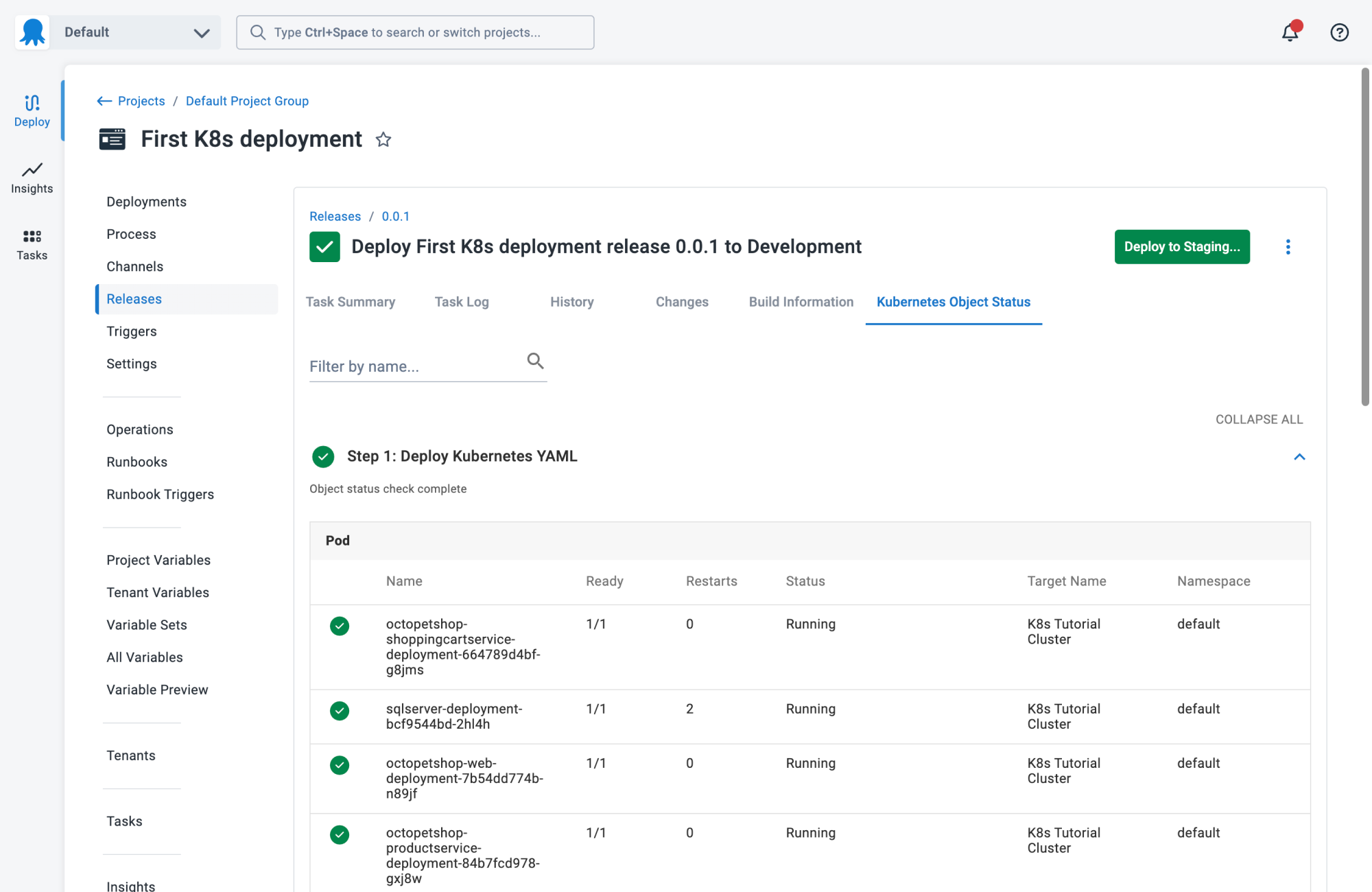
2. Codefresh
Codefresh is a CI/CD platform built for Kubernetes, optimizing and automating software delivery. Based on Argo, it enables GitOps workflows for reliable, automated deployments. The platform focuses on performance with fast build caching, parallel execution, and deep visibility into the entire CI/CD pipeline.
General features of Codefresh:
- Optimized build performance: Uses caching and parallel execution to accelerate the CI/CD process, reducing build times and improving efficiency.
- Automated rollbacks & progressive deployment: Supports rollback mechanisms and deployment methods, including canary and blue-green strategies.
- GitOps-driven workflows: Uses Argo for declarative, automated deployments, ensuring consistency and traceability.
- Comprehensive observability: Provides visibility from build to deployment, aiding in troubleshooting and performance monitoring.
- Scalable & reusable pipelines: Features pipeline inheritance, templates, and extensible triggers to support DRY (Don’t Repeat Yourself) principles.
Kubernetes-specific features:
- Kubernetes-native deployments: Built to understand and manage Kubernetes, Helm, and serverless workflows.
- GitOps with Argo: Supports GitOps out of the box, allowing declarative, version-controlled deployments.
- Code-to-cloud visibility: Offers insights from code changes to production environments.
- Flexible triggers and templates: Make it easy to add and manage Kubernetes applications across environments.
- Unified CI/CD for K8s: Eliminates the need to use non-native tools by tightly coupling CI/CD with Kubernetes workflows.
![]()
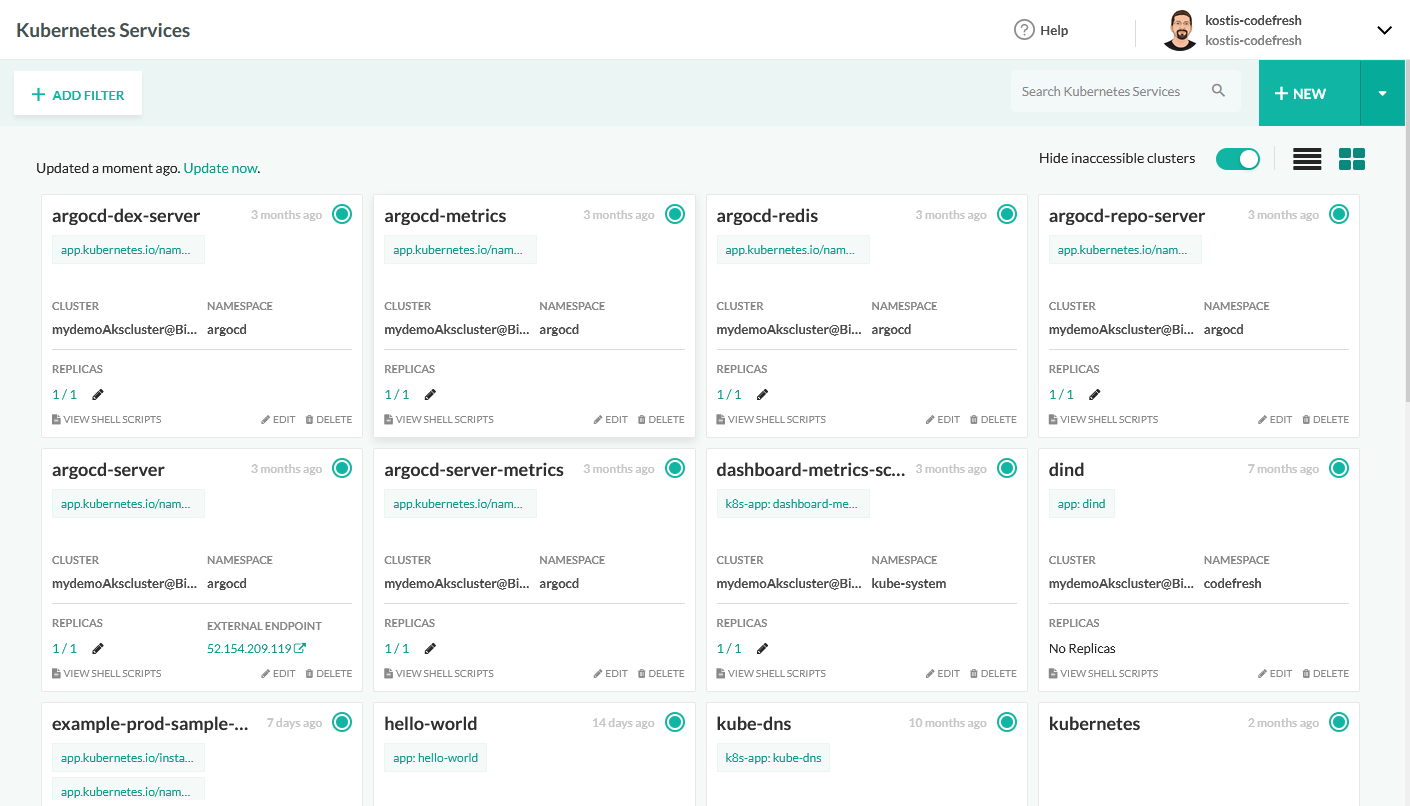
Source: Codefresh
3. Argo CD
Argo CD is a declarative, GitOps Continuous Delivery tool for Kubernetes. It automates application deployment by continuously monitoring live application states and syncing them with the desired state defined in Git repositories.
Key features include:
- GitOps-based deployments: Ensures applications are always in the desired state by continuously syncing with Git repositories.
- Automated drift detection: Monitors applications and detects configuration drift, allowing teams to automatically or manually restore the desired state.
- Multi-cluster management: Supports deployment across multiple Kubernetes clusters, enabling centralized control over distributed applications.
- Security & access control: Integrates with SSO providers (OIDC, OAuth2, LDAP, SAML) and provides role-based access control (RBAC) for secure application management.
- Advanced deployment strategies: Supports progressive delivery methods such as blue-green and canary deployments through PreSync, Sync, and PostSync hooks.
![]()
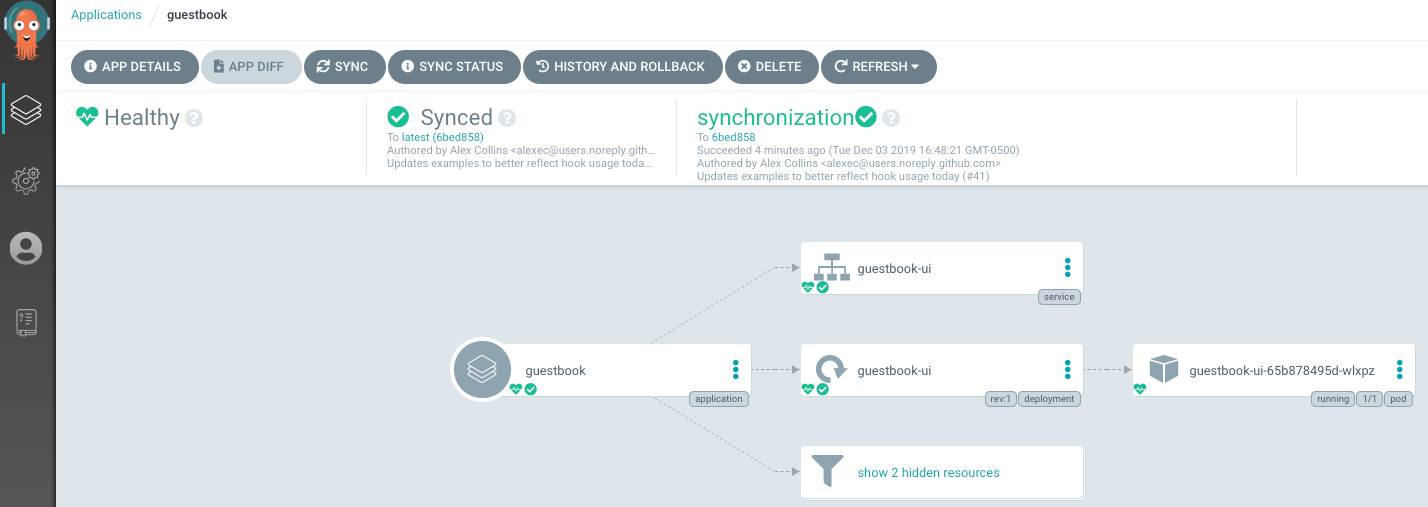
Source: Argo CD
4. GitLab CI/CD
GitLab CI/CD is an integrated automation platform that simplifies and accelerates software development by handling builds, testing, and deployments. Its security scanning, reusable pipeline templates, and scalable deployment options help improve visibility and compliance, making it suitable for both legacy systems and cloud-native applications.
General features include:
- Integrated CI/CD pipelines: GitLab’s pipelines are built into the platform, enabling automation. \
- Security and compliance tools: Static and dynamic application security testing (SAST/DAST), container scanning, and license compliance checks help secure the software supply chain.
- Reusable configurations: Teams can define pipeline templates and share configuration logic using
includestatements and custom pipeline components. - Auto DevOps: GitLab can automatically configure CI/CD pipelines, build images, and deploy applications.
Kubernetes features include:
- GitLab Kubernetes Agent: Connects Kubernetes clusters with GitLab for secure and scalable CI/CD workflows. It supports pull-based and push-based deployments.
- Environment management: GitLab maps deployments to dynamic environments inside Kubernetes, enabling per-branch previews and review apps.
- Infrastructure as code support: GitLab integrates with tools like Terraform to manage cluster resources and state as part of the pipeline.
- Multi-cluster deployments: Teams can deploy to different clusters from the same pipeline, supporting hybrid and multi-cloud strategies.
![]()
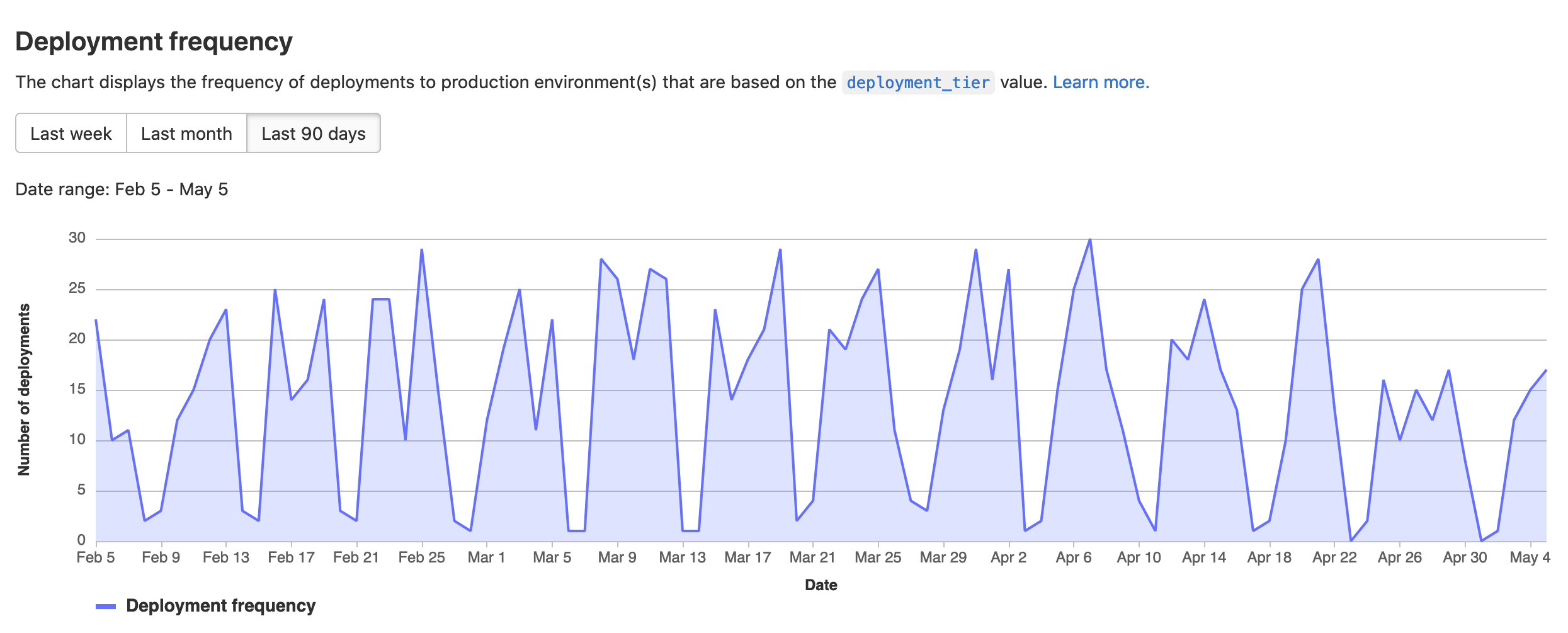
Source: GitLab
5. Jenkins
Jenkins X is a cloud-native CI/CD solution to simplify software delivery using Kubernetes and GitOps principles. It automates the setup and management of pipelines, infrastructure, and deployments. By integrating with open-source technologies like Tekton, Helm, and Lighthouse, it aims to provide a scalable approach to Continuous Integration and Delivery in the cloud.
Key features include:
- GitOps-driven automation: Manages infrastructure, applications, and updates through Git.
- Kubernetes-native pipelines: Uses Tekton as the default pipeline engine, enabling declarative, cloud-native CI/CD workflows.
- Secret management: Integrates with external secret providers like Vault, AWS Secrets Manager, and Google Secret Manager for secure storage.
- Infrastructure as code: Uses Terraform to automate cloud infrastructure setup, including storage, container registries, and secret management.
- ChatOps integration: Uses Lighthouse to enable interaction with pipelines via pull request comments.
![]()
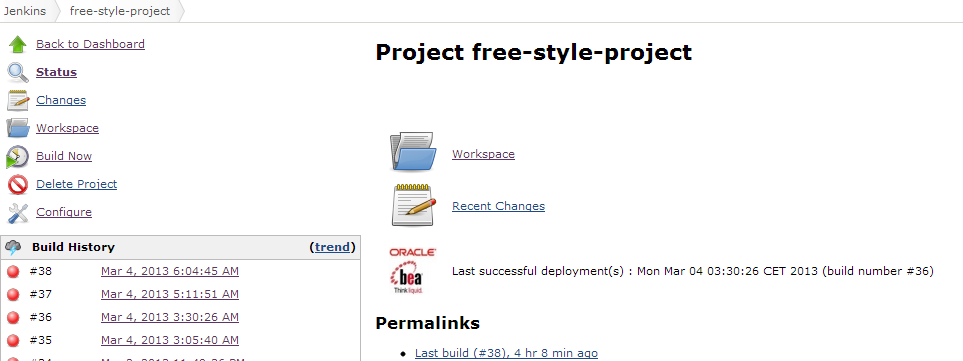
Source: Jenkins
6. CircleCI
CircleCI is a CI/CD platform that automates the build, test, and deployment process for applications such as web, mobile, and cloud-native software. By ensuring every code change is validated before production, CircleCI helps engineering teams release high-quality software.
General features include:
- Customizable workflows: Define job dependencies, approval gates, and parallel execution using a YAML-based configuration.
- Performance optimization: Test splitting, caching, and resource classes reduce build times.
- Integrations: CircleCI integrates with tools like GitHub, Bitbucket, Slack, and Jira for collaboration.
- Security and compliance: Features like role-based access control, audit logging, and private or self-hosted runners ensure secure CI/CD processes.
Kubernetes features include:
- Kubernetes executor: Allows running jobs directly inside Kubernetes clusters, improving resource usage and isolation.
- Cluster deployments: Automate deployment to Kubernetes via native integrations with
kubectl, Helm, or custom scripts. - Observability and debugging: Includes access to pod logs and support for ephemeral environments for easier testing and troubleshooting.
![]()
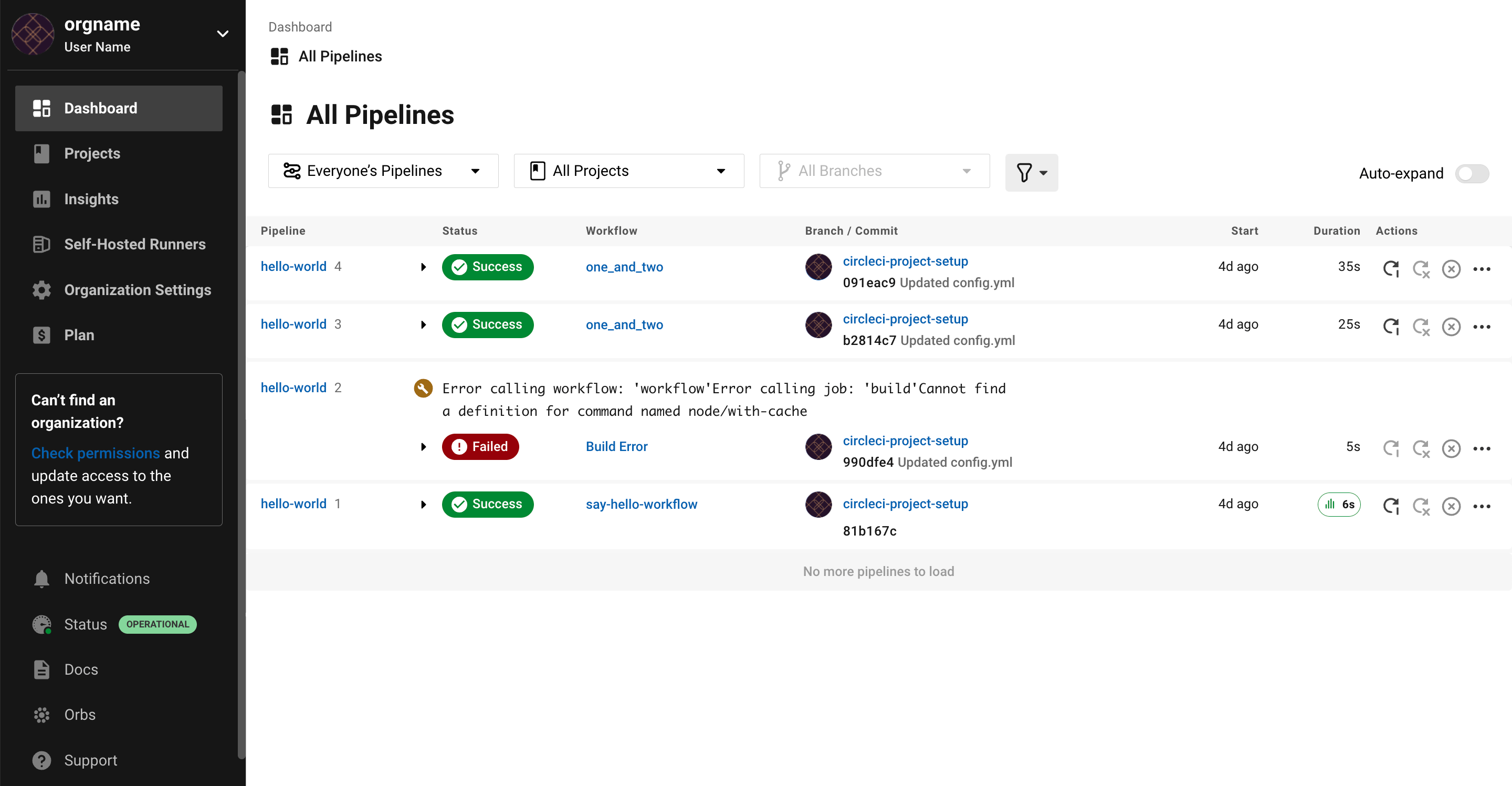
Source: CircleCI
7. Buildkite
Buildkite is a CI/CD platform intended to optimize software delivery for high-performance engineering teams. It provides workflow automation, test optimization, and secure package management. With support for unlimited concurrency, dynamic pipelines, and security controls, it helps organizations simplify their software development lifecycle.
General features include:
- Hybrid execution: Pipelines run agents on cloud, on-premises, or Kubernetes infrastructure, providing control over compute and data.
- Pipeline flexibility: Supports dynamic pipelines defined in code, enabling conditional logic and modular pipeline steps.
- Scalability: Unlimited concurrency and parallelism let teams scale testing and deployments.
- Security-first design: Self-hosted agents and strict job isolation help ensure privacy and compliance for sensitive workloads.
Kubernetes features include:
- Native Kubernetes support: Run Buildkite agents inside Kubernetes to scale pipelines using native container orchestration.
- Dynamic infrastructure: Agents can autoscale within Kubernetes, matching CI/CD workloads to cluster resources on demand.
- CI-as-code: Developers define and version pipelines and infrastructure using declarative configs, aligning with GitOps practices.
![]()
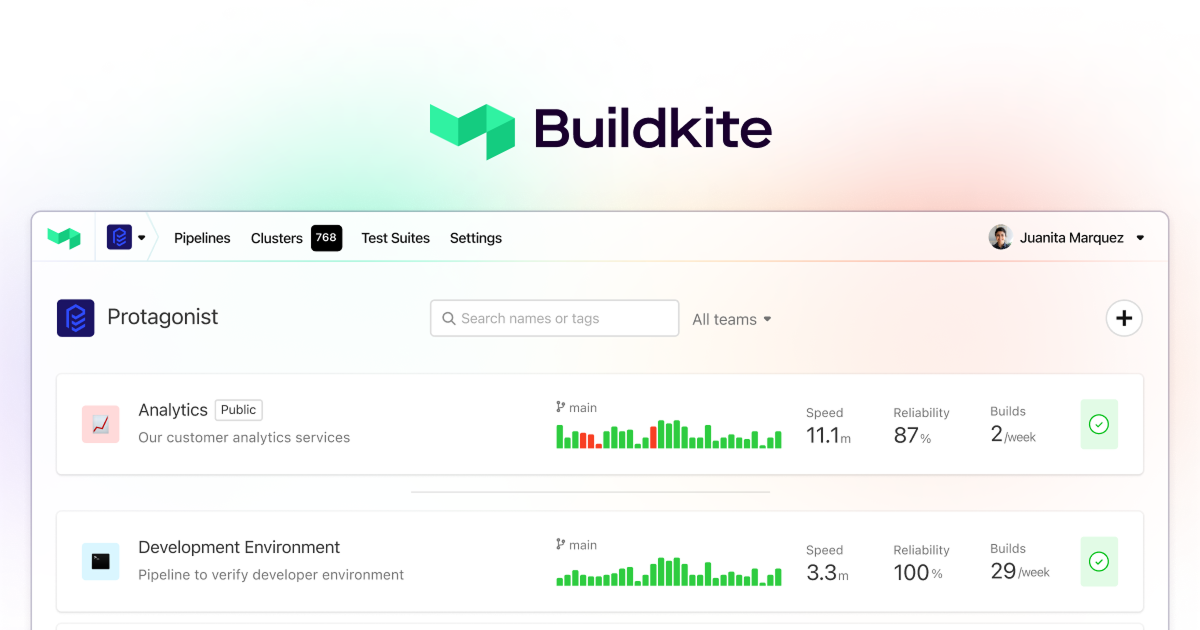
Source: Buildkite
Conclusion
Effective Kubernetes CI/CD solutions simplify software delivery by automating testing, deployment, and monitoring, ensuring faster and more reliable releases. These tools use Kubernetes-native capabilities to support scalable and resilient workflows, reducing manual intervention and minimizing errors. By integrating GitOps, progressive deployment strategies, and security automation, organizations can maintain consistency across environments while accelerating development cycles.
Related content: Read our guide to Kubernetes CI/CD services
Help us continuously improve
Please let us know if you have any feedback about this page.